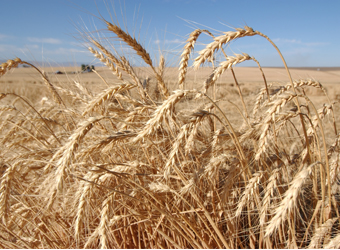Two wheat cargoes rejected by Egypt’s agriculture quarantine service for containing poppy seeds are still in the custody of the public prosecutor and have not been released yet, Egyptian Red Sea Port Authority stated Saturday.
The agriculture minister said on Wednesday that the poppy seed variety found in the cargoes from France and Romania was not dangerous and the shipments would be released and sieved.
But there has still been no word from the prosecutor on whether that will take place.
The director of the port, General Ashraf Abdel Moneim, said the two cargoes in question were still in the port, in the custody of the prosecutor, and were awaiting his decision on the matter.
Still, agriculture ministry spokesman Hamid Abdel Dayem said the there was a “definite leaning” toward releasing the two shipments and sieving them.
Egypt, the world’s biggest wheat buyer, rattled global suppliers by referring the two cargoes to the public prosecutor for containing what it said were drug-producing poppy seeds. The prosecutor has yet to issue a final decision on whether the wheat should be re-exported.
State grain buyer GASC has said that the agriculture quarantine service has signed a letter stating that the kind of seed found in the Romanian cargo is papaver rhoeas which is not harmful.
But traders are still waiting for the final decision of the prosecutor.
Red Sea Port Authority spokesman Malak Youssef said a 63,000 ton Russian wheat shipment being checked at the port of Safaga was looking likely to be accepted without problems.
Any rejection of a GASC cargo could lead suppliers to boycott the state’s massive tenders, protesting what they describe as excessive inspection measures that have made doing business with Egypt increasingly risky.
In a similar trade row last year, Egypt temporarily banned any trace of ergot, a common grain fungus, in cargoes. That move halted the country’s billion-dollar grain trade after suppliers said the zero-tolerance level was impossible to guarantee.
Source: Reuters


